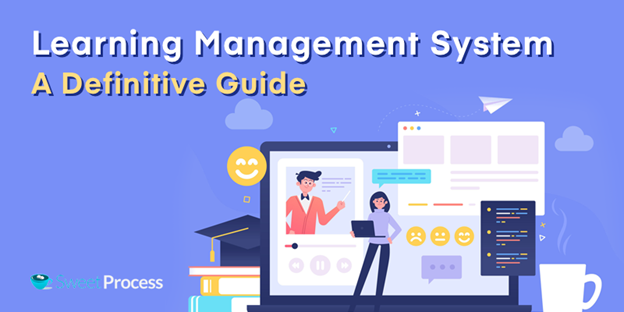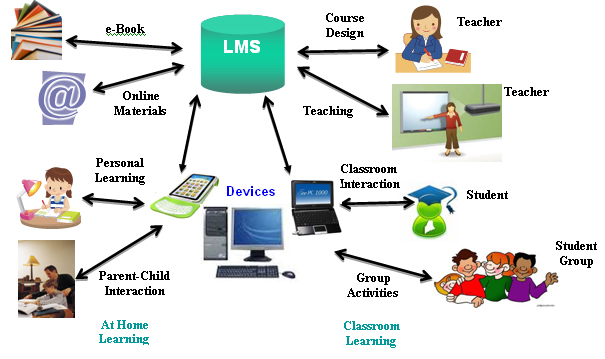Simplify Education With a Leading Discovering Management System
In the ever-evolving landscape of education and learning, the adoption of a leading Knowing Monitoring System (LMS) presents a critical chance to simplify processes and improve both training and finding out experiences. By automating administrative tasks and supplying tailored discovering courses, an efficient LMS not only assists in far better involvement but also promotes a setting for collaboration and inclusivity (LMS SG). However, the integration of such a system raises vital concerns regarding its execution and the level of its influence on pupil end results. What strategies should establishments take into consideration to make the most of these benefits?
Advantages of an Understanding Administration System
A Learning Administration System (LMS) provides numerous benefits that can substantially boost the educational experience for both teachers and students. Mostly, an LMS promotes structured course management, enabling teachers to manage training course materials, track student development, and assess performance successfully. This automation minimizes the management burden on instructors, enabling them to concentrate more on mentor and student interaction.
Additionally, LMS platforms sustain customized understanding paths, fitting varied knowing designs and paces. This versatility cultivates a more inclusive setting, enabling learners to accessibility resources that best fit their demands. Additionally, the access of an LMS allows trainees to involve with training course content anytime and anywhere, promoting self-directed knowing and suiting various schedules.
An additional notable benefit is the improved partnership possibilities an LMS gives. Conversation discussion forums, team projects, and peer assessments encourage interaction among learners, enhancing their understanding through shared point of views. Additionally, the data analytics functions of an LMS allow teachers to acquire understandings into student interaction and efficiency, notifying training strategies and interventions.
Key Attributes to Try To Find

Next, durable reporting and analytics capabilities give useful understandings right into student development and engagement, permitting educators to make data-driven choices. Combination with other tools, such as material authoring software program and interaction platforms, is likewise crucial for improving capability and enhancing workflows.
Scalability is an additional important attribute, guaranteeing that the LMS can expand along with the institution's demands, fitting an increasing variety of individuals and content. Additionally, mobile compatibility is essential in today's electronic landscape, enabling students to access academic products on numerous gadgets.
Last but not least, strong security steps have to be in location to shield delicate details and maintain compliance with instructional regulations. By prioritizing these key features, companies can pick an LMS that supports effective mentor and finding out outcomes, eventually improving the instructional experience for all stakeholders involved.

Enhancing Student Involvement
Trainee interaction is an essential consider the success of any type of academic program, as it straight affects discovering end results and retention prices. A robust Learning Management System (LMS) can play a crucial role in improving trainee involvement through different cutting-edge features.

Furthermore, tailored knowing courses allow trainees to proceed at their own rate, satisfying private learning styles and preferences. This adaptability not only promotes a feeling of ownership over their discovering trip however additionally maintains students invested and inspired.
In addition, real-time feedback systems make it possible for instructors to monitor trainee performance and supply prompt assistance, more improving the finding out experience.
Execution Strategies for Institutions
Successful application of a Discovering Monitoring System (LMS) calls for establishments to adopt a tactical technique that lines up innovation with academic objectives. To accomplish this, organizations must start by performing a detailed demands analysis to recognize details needs, making certain that the LMS will properly resolve difficulties faced in training and learning.
Next, interesting stakeholders-- faculty, managers, and trainees-- is critical for cultivating a culture of cooperation and assistance. Training sessions ought to be organized to outfit individuals with the required skills to utilize the LMS successfully. Furthermore, institutions must allot enough resources, including time and budget plan, to help with a smooth change and continuous maintenance.
Furthermore, developing a phased rollout plan can help mitigate possible disturbances. Organizations can begin with pilot programs to check functionality and collect feedback prior to full-blown application. Continuous analysis and adaptation of the LMS based upon individual experience will certainly even more boost its efficiency.
Last but not least, it is necessary to interact a clear vision of just how the LMS supports instructional practices, consequently encouraging buy-in from all celebrations entailed. By adhering to these methods, institutions can make sure a successful LMS application that inevitably enhances the academic experience.
Gauging Success and Outcomes
Determining the success and end results of an Understanding Management System (LMS) is vital for establishing its effect on training and learning. This process includes the collection and evaluation of qualitative and measurable information to review the performance of the LMS in achieving educational goals. Key performance indicators (KPIs) such as student engagement rates, course completion rates, and assessment scores supply essential insights into user interaction and learning outcomes.
Furthermore, surveys and comments devices can capture the experiences of both instructors and pupils, using useful point of views on usability, content relevance, and total fulfillment. By triangulating these data sources, organizations can determine strengths and locations for renovation within the LMS structure.
Additionally, aligning LMS metrics with institutional objectives boosts liability and supports strategic preparation (LMS SG). Tracking retention rates and post-course efficiency can educate curriculum changes and resource allocation. Ultimately, a methodical method to gauging success and results not only makes sure continuous renovation of the LMS but additionally cultivates a society of data-driven decision-making. This commitment to analysis empowers schools to boost their mentor techniques and enhance student experiences successfully.
Conclusion
The assimilation of a leading Learning Administration System (LMS) dramatically enhances academic experiences by automating management jobs and providing customized discovering opportunities. By cultivating collaboration and inclusivity, a reliable LMS not only enhances trainee interaction yet additionally drives better understanding outcomes. Organizations need to focus on the choice and execution of an LMS that straightens with their objectives, ensuring robust analytics and interactive content are utilized to measure success and constantly improve the academic environment.
A Knowing Management System (LMS) provides various advantages that can considerably improve the instructional experience for both students and teachers.Additionally, LMS platforms sustain tailored understanding courses, accommodating varied understanding designs and paces.Determining the success and end results of a Learning Management System (LMS) is essential for establishing its influence on teaching and understanding.The assimilation of a leading Discovering Administration System (LMS) considerably enhances instructional experiences by automating management jobs and giving individualized discovering opportunities. By cultivating partnership and inclusivity, an effective LMS not just enhances student involvement however additionally drives much better understanding end results.